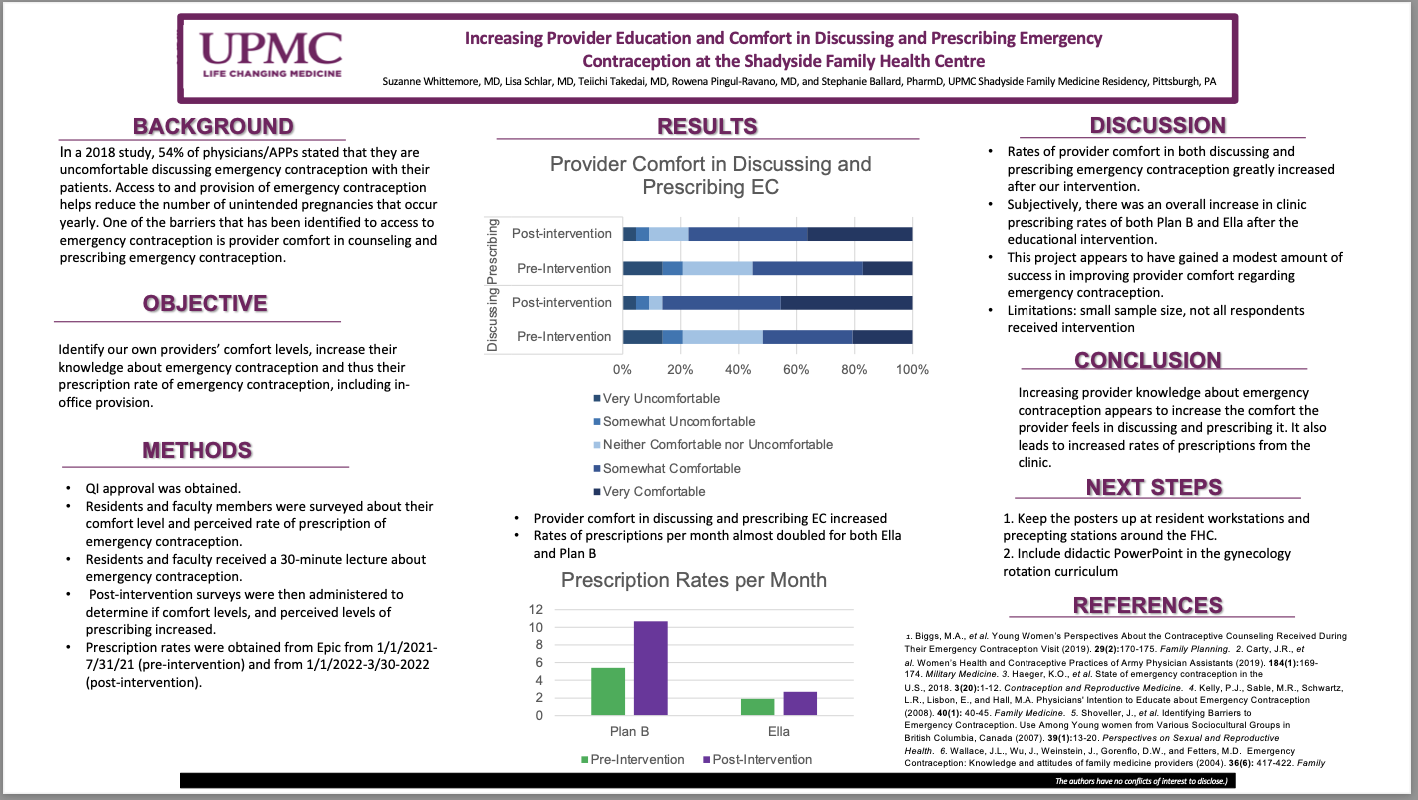Family Practice Physician, Yarmouth Regional Hospital, Yarmouth, Nova Scotia
Title: Increasing Prescriber Education and Prescription Rates of Emergency Contraception at the Shadyside Family Health Center
Authors: Suzanne Whittemore, MD; Lisa Schlar, MD; Rowena Pingul-Ravano, MD; Stephanie Ballard, PharmD, BCPS
Background:
54% of physicians/APPs stated that they are uncomfortable discussing emergency contraception with their patients. Access to and provision of emergency contraception helps reduce the number of unintended pregnancies that occur yearly. One of the barriers identified is provider comfort in counseling and prescribing emergency contraception. This project sought to identify our own providers’ comfort levels, increase their knowledge about emergency contraception and thus their prescription rate of emergency contraception, including in-office provision.
Methods:
Residents and faculty members were surveyed about their comfort level and perceived rate of prescription of emergency contraception. Residents and faculty then received a 30-minute lecture about emergency contraception. Both Plan B and Ella were available to provide in clinic or be prescribed to the patient’s pharmacy. Post-intervention surveys were then administered to determine if comfort levels, and perceived levels of prescribing increased. Furthermore, prescription rates were obtained from Epic from 1/1/2021-7/31/21 (pre-intervention) and from 1/1/2022-3/30-2022 (post-intervention).
Results:
Very and somewhat uncomfortable with both discussion and prescription went from approximately 20% to 10%, while somewhat and very comfortable with discussion of EC went from 50% to 85% and prescribing from 54% to 75%.
Pre-intervention, the prescription rate per month was 1.9 for Ella and 5.4 for Plan B. Post-intervention, the prescription rates for Ella and Plan B were 2.7 and 10.7, respectively.
Discussion:
Rates of provider comfort in both discussing and prescribing emergency contraception increased after our intervention. Subjectively, there was an overall increase in clinic prescribing rates of both Plan B and Ella after the educational intervention. This project appears to have gained a modest amount of success in improving provider comfort regarding emergency contraception.
Conclusion:
Increasing provider knowledge about emergency contraception appears to increase the comfort the provider feels in discussing and prescribing it. It also leads to increased rates of prescriptions from the clinic.

